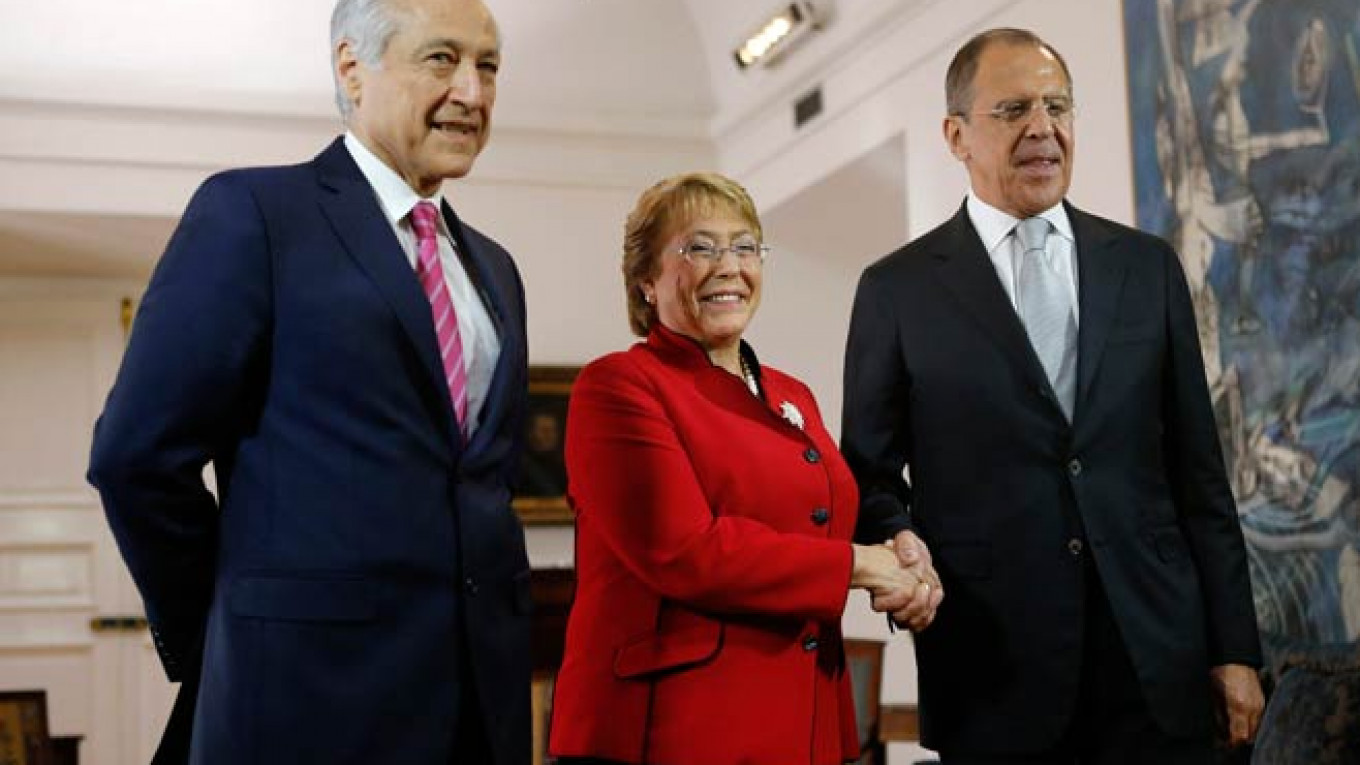The Russian government published an 80-page report on Monday detailing "widespread and gross human rights violations" in Ukraine over the past six months for which it blamed the new government and its Western allies.
With Kiev and the West accusing Moscow of sowing unrest in order to extend control of its ex-Soviet neighbor after the annexation of Crimea, the report, published online in English, was the latest salvo in an information war in which Russia says its adversaries are Ukrainian fascists who took power in a coup against the Kremlin-backed President Viktor Yanukovych.
The Foreign Ministry report, entitled "White Book on Violations of Human Rights and the Rule of Law in Ukraine," was presented to President Vladimir Putin, whose spokesman said its aim was to draw the attention of "international legal bodies."
The report, which does not give a source for many of the incidents and allegations it describes, ranges from an account of the demolition of a statue of Lenin to the storming of public buildings, beatings of Jews and the killings of 77 people in Kiev in the days before Yanukovych fled to Russia on Feb. 22.
While the new government and its Western allies blame many of the deaths on police snipers, the Russian report — with a cover image of a policeman set ablaze by a petrol bomb — cites a suggestion that Yanukovych's opponents were behind the shooting.
In a section devoted to foreign "interference," it notes visits by Western officials to the Maidan protest camp during protests that began after the president rejected closer ties to the European Union in November. It highlighted — along with a photograph — the "distribution of cookies" by Victoria Nuland, a senior U.S. State Department official, and cited "reports" that her ministry had "directed" the Euromaidan protests.
Among its exhibits were World War II pictures of Ukrainian nationalist collaboration with the Nazi invaders, including a poster recruiting Ukrainians into Hitler's SS alongside a photograph of nationalist parliamentary leader Oleh Tyahnybok and an anti-Semitic, anti-Russia remark attributed to him.
The Foreign Ministry concluded that "extremists from ultranationalist and neo-Nazi forces" who had "active" support from the West had staged a coup in Kiev in February.
"Manifestations of extremist, ultra-nationalist, and neo-Nazistic sentiments, religious intolerance, xenophobia, blatant blackmail, threats … repression, physical violence, and sometimes plain criminal lawlessness have become commonplace in Ukraine," said the report, which was also released in Russian.
The release of the report may be intended to strengthen Foreign Minister Sergei Lavrov's position at a meeting of the Council of Europe in Vienna on Monday and Tuesday. The ministry said he would press the human rights watchdog to help Ukraine enact reforms that Moscow deems necessary to ease tension.
It denies Ukrainian and Western allegations that it has forces on the ground in eastern Ukraine, and says troops massed on the border are not planning to invade. But Putin has said he would act to defend Russian speakers who seek Moscow's aid.
In a statement released on Monday, the ministry urged Kiev to withdraw the Ukrainian forces deployed against pro-Russian militants in the east and called on their leaders "to come to their senses, stop the bloodshed, withdraw forces and finally sit down at the negotiating table."
A Message from The Moscow Times:
Dear readers,
We are facing unprecedented challenges. Russia's Prosecutor General's Office has designated The Moscow Times as an "undesirable" organization, criminalizing our work and putting our staff at risk of prosecution. This follows our earlier unjust labeling as a "foreign agent."
These actions are direct attempts to silence independent journalism in Russia. The authorities claim our work "discredits the decisions of the Russian leadership." We see things differently: we strive to provide accurate, unbiased reporting on Russia.
We, the journalists of The Moscow Times, refuse to be silenced. But to continue our work, we need your help.
Your support, no matter how small, makes a world of difference. If you can, please support us monthly starting from just $2. It's quick to set up, and every contribution makes a significant impact.
By supporting The Moscow Times, you're defending open, independent journalism in the face of repression. Thank you for standing with us.
Remind me later.


